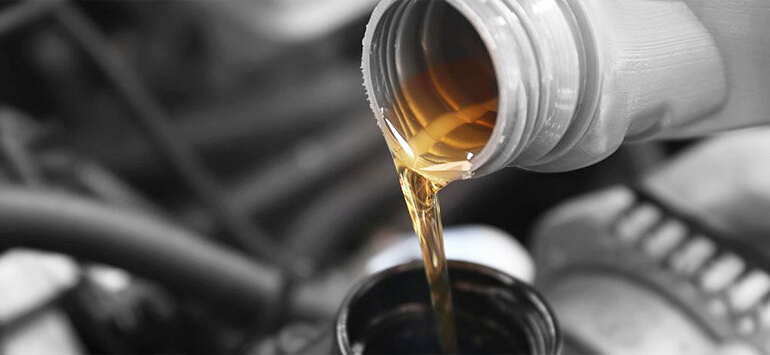
Tires & Wheels
A flat tire can cause the rim of the tire to rest on the tire tread or on the ground possibly causing a loss of control of the vehicle or irreparable damage to the tire. One of the most common causes of a flat tire is a puncture by a sharp object, such as a nail. Whether the tire deflates quickly or slowly, a deflating tire can result in damage to the valve stem and separation of the tire from the rim.
If you have a slow leak, and depending upon the type of damage you have, the tire pros at K&M will be able to repair it. For tires that cannot be repaired, we will recommend that you replace the tire.
Here are some simple methods to catch tire issues before they become costly or cause unsafe driving. Look for unequal tire wear, which may be caused by:
- Excessive or too little air pressure
- Problems with wheel alignment
- A tire/wheel assembly that is out of balance
- Problems with the suspension
- Not having your tires regularly rotated
Also look for signs that you may need new tires:
- Split or bulging tread or sidewalls
- Objects that have penetrated the tire, such as nails or pieces of glass
- Tread tearing away from the body of the tire
Additional Tire Services Offered By K&M Automotive:
Tire Rotation
Tire rotation should be done every 3,000 to 6,000 miles or with every oil change. K&M Automotive offers high-quality, affordable auto repair services.
Rotating your tires is vital for helping your tires last longer. Rotation includes changing tires from one side of the vehicle to the other, relocating them from front to back or a blend of both, depending on the type of vehicle and tires you have. Some tires have to be rotated at specific periods, while others will have to be rotated depending on the wear. Unequal tire wear could lead to unsatisfactory performance and poor fuel economy, and shorten the life of the tire.
Many factors can cause unequal tire wear, including:
- Frequently driving in stop-and-go traffic or through road construction and potholes
- Under- or over-inflation
- Worn shocks
- Unaligned wheels
- Not rotating your tires
Wheel & Tire Balancing
Tire balancing is important to extend the life of your tires, as well as increase the safety of your vehicle. K&M Automotive offers affordable tire and wheel balancing services in Dundalk, MD.
Out-of-balance tires can lead to uneven wear; vibration in your steering wheel, seat, or floorboards; and potentially unsafe driving. It is very important to balance tires frequently based on your car’s requirements.
Tires are balanced when you replace two or four tires on your vehicle. Because tires’ wear depends on driving routines and road conditions, unequal wear will start to become apparent after the first 1,000 to 2,000 miles of use. Tires must be checked for balance every 4,000 to 6,000 miles. Our technicians can determine whether your tires should be rotated and balanced based on wear or mileage.
IMPORTANT: It is not advised to replace just one tire, as this might create significant problems with alignment, balance and handling of the vehicle.
How to tell if your tires need balancing:
- Vibrations when driving
- Uneven tread wear
- Steering that becomes less smooth over the life of the tires
- Pulling to one side
Tire Pressure Monitoring System
Also known as TPMS, this system measures the air pressure or rotational speed of your tires to determine whether they have the proper amount of air pressure. Since most tire failures occur due to under inflation, it is important to make sure this system is working properly.